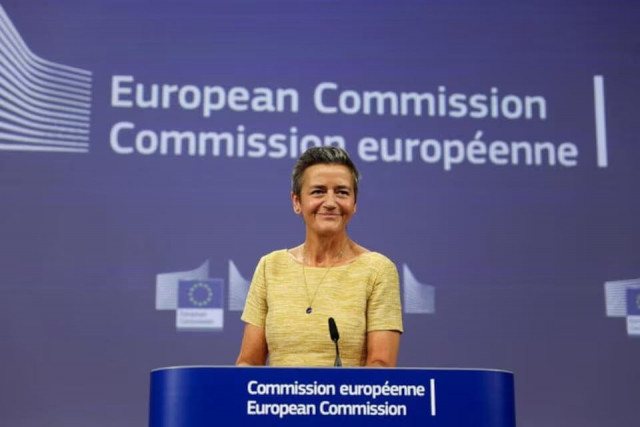EU antitrust chief wins against Apple, Google
Court backs crackdown on Apple's tax deal, Google's attempts to stifle rivals

EU antitrust chief Margrethe Vestager scored two major wins on Tuesday as Europe's top court backed her crackdown against Apple's Irish tax deal and Google's anti-competitive practices in two landmark cases.
Vestager, who ends her term in November, has made a name for herself going after Big Tech's tax arrangements with some EU countries and attempts to stifle smaller rivals. The court victories could embolden her successor to take a similar tack.
The EU antitrust chief cheered the judgments. "Today is a huge win for European citizens and tax justice," she said on X of the Apple ruling, also praising the Google judgment as a big win for digital fairness.
The European Commission in 2016 ordered Apple to pay 13 billion euros ($14.4 billion) in back taxes to Ireland, saying that the iPhone maker benefited from two Irish tax rulings for over two decades that artificially reduced its tax burden to as low as 0.005% in 2014.
The Luxembourg-based Court of Justice of the European Union sided with Vestager.
The judges said Apple's two units incorporated in Ireland enjoyed favourable tax treatment compared to resident companies taxed in Ireland which are not capable of benefiting from such advance rulings by the Irish tax authorities.
Apple, which said it paid $577 million in tax, 12.5% of the profit generated in the country, in line with the tax laws in Ireland in the period 2003-2014 covered in the EU investigation, said it was disappointed with the ruling.
"The European Commission is trying to retroactively change the rules and ignore that, as required by international tax law, our income was already subject to taxes in the US," Apple said.
Meanwhile, Alphabet's Google, on Tuesday, lost its fight against a 2.42 billion euro ($2.7 billion) fine levied by EU antitrust regulators seven years ago, one of a trio of hefty fines meted out to the company for various anti-competitive practices.



















COMMENTS
Comments are moderated and generally will be posted if they are on-topic and not abusive.
For more information, please see our Comments FAQ